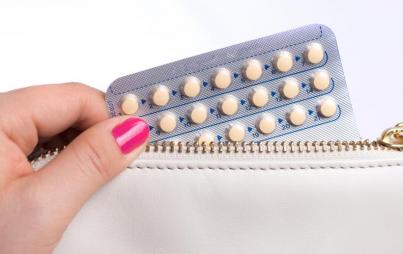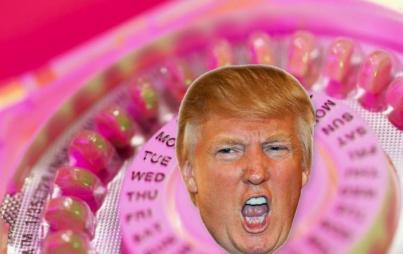
Attack of the designer babies! The New York Times recently launched a heated debate when it examined a new procedure, currently under consideration by the FDA, that would replace defective mitochondria with healthy mitochondria. The practice could lead to fewer birth defects, but as the article pointed out, many fear it could also promote the creation of Gattaca-style "designer babies."
Other recent tools, like the "family traits inheritance calculator" 23andMe have come up against similar ethical scrutiny, as the issue continues to dominate public discourse.
We decided to do a little digging around on this trending topic, and as it turns out, the history of eugenics is really bizarre. To wit:
"Eugenics," Brought to You By Darwin's Cousin
The term "eugenics" was first coined in 1883 by none other than Charles Darwin's cousin, Sir Francis Galton, who studied scientific methods to improve the "breed of man." The term is based on the Greek word eugenes, which means "good birth." Before long, the catchy term and associated concept—using genetics to create super-people—was catching on...including, to a strange degree, in the Hoosier state.
Indiana's Eugenics Love and Creepy "Better Babies Contest"
It's been called the "better baby crusade." In the 1920s, the Indiana State Board of Health's Division of Infant and Child Hygiene initiated a high-profile "child saving" program, rooted in the burgeoning eugenics movement, that involved educating parents on infant nutrition, health and hygiene. Some of this, of course, was very good: in part because of these efforts, for instance, the state's infant mortality dropped by a third between 1920 and 1930. But some of it was also very, very bad (and weird).
A key component of this eugenics division was "race betterment," which meant preventing the unfit (read: the poor and African-Americans) from breeding and mucking up gene pools. So, naturally, when the movement led to the creation of the Indiana State Fair "Better Baby Contest"—during which infants, like livestock, were disrobed, weighed, measured, and tested for temperament and intellect—black babies were banned. As it's been noted, this segregated approach to a head-scratching form of popular entertainment "reinforced patterns of segregation in Indiana and promoted the idea that only White babies could achieve perfection and symbolize the Hoosier state. "
Said the contest organizer:
You can not make a silk purse out of a sow's ear, neither can we make a citizen out of an idiot or any person who is not well born.
Which leads us to...
Glorious Birth Control, Sadly Rooted in Racism
It's easy to laud Margaret Sanger, the woman behind the birth control movement, for liberating women by mainstreaming the pill in the 1920s and 30s. But guess what, guys: She was kind of a racist. While promoting birth control, Sanger made clear that part of the intention was to prevent the "unfit" (read, again: the poor and African-Americans) from breeding. In this way, Sanger was able to capitalize on the dark side of eugenics at a time when the topic was quickly gaining in popularity. In 1920, she said in a public statement:
Birth control is nothing more or less than the facilitation of the process of weeding out the unfit [and] of preventing the birth of defectives.
And here we thought it was a form of female liberation! Our bad.
Obviously, the history of eugenics is way more complicated than this, and trust us when we say diving in will lead you down a very deep rabbit hole. As you navigate the issue, take heart in knowing that, at least, you now have some crazy trivia to bring up at your weekend dinner party.
Image: Wikimedia Commons






